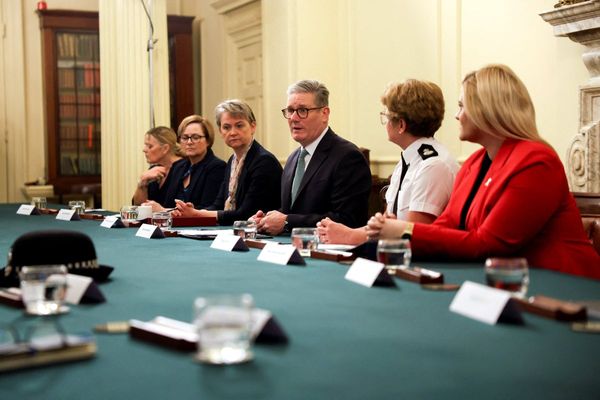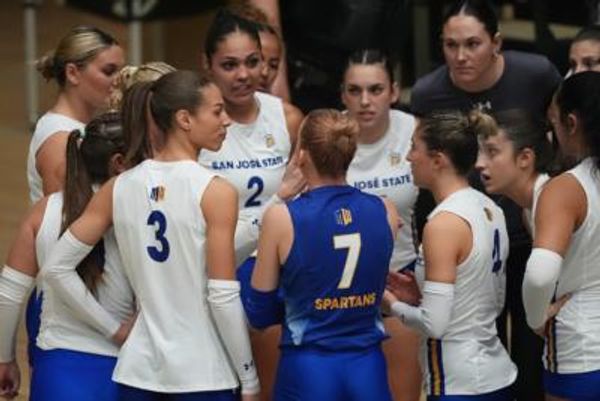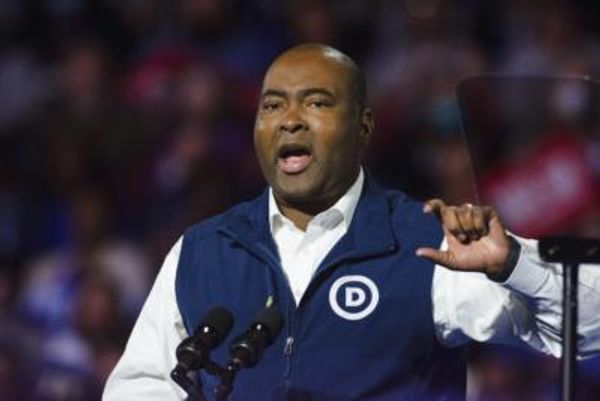WASHINGTON _ Instead of a Bernie Sanders-Elizabeth Warren showdown, the seventh and final Democratic presidential primary debate before voting begins delivered stacks of substance and few fireworks.
After growing signals that the detente between the two progressive senators was ending, both sought on Tuesday to deescalate tensions that had inflamed over a report that Sanders told Warren a woman couldn't be elected president. Sanders continued to deny the claim, while Warren attempted to wield the controversy as a rallying cry for women to join her candidacy. Instead of joining the fight, they walked away from it.
That dynamic was a major theme of the night. Less than three weeks before the leadoff Iowa caucuses, the name of the Des Moines debate game was caution. None of the six candidates on stage produced a runaway victory, but none of the top contenders appeared to harm their standing in a race that remains fluid.
Here are five takeaways from the debate:
FOREIGN POLICY TAKES CENTER STAGE
In something of a surprise, moderators centered the start of seventh debate around foreign policy, which exposed decadeslong divisions between the traditionalist and anti-interventionist wings of the Democratic Party.
Joe Biden was placed on defense for his 2002 vote to authorize the war in Iraq, but sought inoculation by noting the most famous opponent of the conflict (Barack Obama) still selected him to be his running mate.
Sanders sought to cast the issue as a question of Biden's judgment and name-checked Republican Sen. Mike Lee to buttress his case against so-called unconstitutional wars. Warren joined Sanders on his call to remove troops from overseas, a commitment Biden wouldn't make, arguing special forces must be left in Afghanistan.
Amy Klobuchar broadened the debate over Iraq to the current day tinderbox of Iran, pinning the blame on President Donald Trump. And seeking a middle ground, Pete Buttigieg leveraged his experience of serving in a combat zone and called for a three-year sunset on any authorizations of military force.
Foreign policy hasn't been a dominant issue in this race and the exchanges that consumed the first 30 minutes of the debate likely won't sway caucusgoers. But Warren and Klobuchar fielded the initial foreign policy questions with far more command and preparedness than Sanders or Biden, possibly helping allay concerns over whether they can be commander in chief.
THE SANDERS-WARREN SPAT THAT WASN'T
In the night's most anticipated moment, Sanders and Warren appeared to agree to disagree about allegations he once told her a woman couldn't become president, content to avoid relitigating the simmering controversy.
Sanders vehemently denied ever thinking a woman couldn't win, pointing out that Hillary Clinton won 3 million more voters nationally than Trump in 2016.
But even if both candidates stuck closely to their story, Warren used the controversy to forcefully argue not only why women are electable, but why she was the party's strongest possible nominee. The men on stage, Warren pointed out, had together lost 10 elections among them, while she and Klobuchar were the only candidates with a perfect electoral record.
"We need a candidate who excites all parts of the Democratic Party, brings everyone in and gives everyone a Democrat to believe in," she said. "That's my plan, and that's why I'm going to win."
It was perhaps Warren's clearest articulation yet of why she thinks she'd be the party's best opponent against Trump, and it directly addressed a lingering concern many Democratic voters have about her candidacy, even if many may remain unconvinced. It also fit squarely with the senator's emerging strategy to present herself as a unity candidate among all the party's different factions as she tries to reverse months of stagnant poll numbers.
The lack of sparks between Sanders and Warren also indicates both candidates want to deescalate the conflict that has built up between their campaigns in recent days, a development that will please progressives worried that a damaging fight between the race's two leftmost candidates would hand the race to Biden.
THE OTHER SANDERS-WARREN SPLIT
Sanders and Warren did have one other confrontation, albeit a polite one, on trade. It was a rare point of policy disagreement between the two liberals.
Warren said she will vote to ratify the revised NAFTA trade, now known as the U.S.-Mexico-Canada Agreement, in the Senate, calling the deal "a modest improvement" that will bring some relief to farmers and workers in places like Iowa.
"I believe we accept that relief ... and we get up the next day and try to fight for a better trade deal," she said.
Sanders dismissed that proposal as unrealistic. "It is not so easy to put together new trade legislation," the Vermont independent argued. "If this is passed, I believe it will set us back a number of years." But, Sanders quickly added, "Sen. Warren is right that we need to bring the stakeholders to the table."
Of the six Democrats on the debate stage, only Tom Steyer sided with Sanders in opposing USMCA. Steyer, a financier-turned-climate change activist, argued it did not include tough enough environmental provisions.
PROCEEDING WITH CAUTION
Maybe it was the absence of combative candidates like Tulsi Gabbard. Maybe candidates felt risk-averse so close to the Iowa caucuses. Or maybe candidates just believe Democratic voters are sick and tired of negativity.
Whatever it was, a debate widely expected to be acerbic and personal in tone was instead respectful, with the six candidates intent on calmly outlining their policy differences and little else. In that way, Tuesday's showdown was a continuation of a primary that has featured little drama or interpersonal conflict, even though the race is now only weeks away from officially beginning.
There were disagreements, of course: The candidates sparred over health care, climate change, and their mutual foreign policy experiences and worldviews. But the conversation among them felt more like differences of opinion than personal attacks.
"Joe and I have a fundamental disagreement here, in case you haven't noticed," Sanders said at one point while sparring with Biden over trade agreements, drawing laughs from the audience. The senator explained their differences, but his answer lacked any sharp invective directed at the former vice president.
There may be one simple explanation for the debate's unexpectedly calm tone: Going on the attack hasn't worked. Other candidates who have tried to mix it up on stage during past debates, like Gabbard, Julian Castro or Kamala Harris, all faced voter backlash, a lesson the remaining hopefuls might have internalized.
IMPEACHMENT TAKES A BACK SEAT
Trump is the first president to be impeached and seek reelection. Despite that historic first, impeachment was an afterthought Tuesday night. The issue didn't come up until the last half-hour of the two-hour debate, and the candidates spent less than 10 minutes discussing it.
Perhaps it isn't a high-profile issue at this point in the election because there's little disagreement between the Democrats currently vying for their party's nomination. All six of the candidates on stage agreed that it was necessary for House Democrats to impeach Trump, given his behavior toward Ukraine, regardless of the political fallout.
"Some things are more important than politics," Warren argued. But she also succinctly foreshadowed how Democrats are likely to use the issue in a general election contest against Trump. "Something that we should all be talking about is the corruption of this administration," Warren said. "That is what lies at the heart of" the impeachment trial.
Warren, Sanders and Klobuchar could all be pulled off the campaign trail in the final weeks before the Iowa caucuses, as the Senate's impeachment trial is expected to begin next week.







